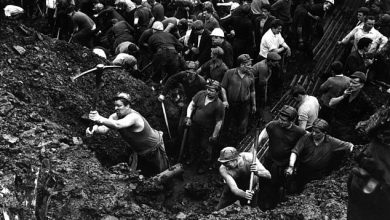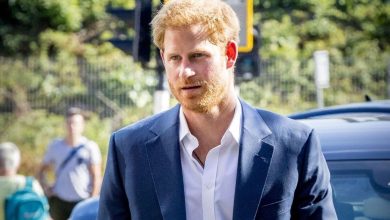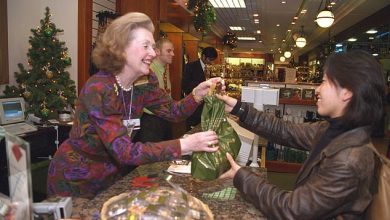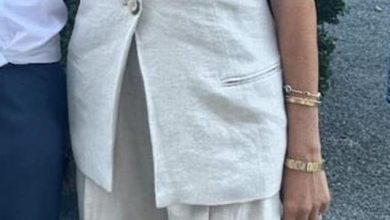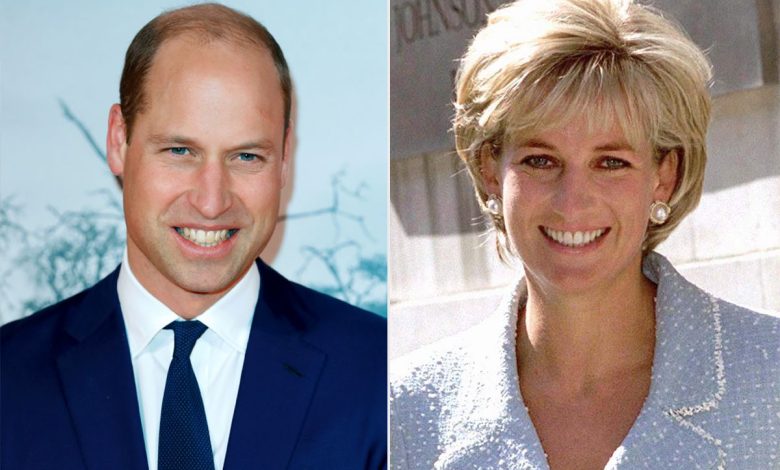
Prince William Reflects on How Princess Diana ‘Had a Really Big Impact’ on Him
- Prince William discussed the impact his mother, Princess Diana, had on introducing him to the issue of homelessness when he was a young boy
- Part one of the Prince of Wales’ new docuseries, Prince William: We Can End Homelessness, aired Oct. 30 on ITV, with part two set to follow on Oct. 31
- The Prince of Wales launched his Homewards initiative in June 2023 with a five-year plan of making homelessness “rare, brief and unrepeated”; the first year of the program is profiled in his new documentary
The U.K. is experiencing the worst homelessness crisis “in living memory,” with more than 350,000 people across Britain lacking a permanent home. Prince William wants to change that.
In part one of his two-part documentary, Prince William: We Can End Homelessness — which aired Oct. 30, with part two to air Oct. 31 — the Prince of Wales, 42, allows cameras to follow him in the first year of his Homewards initiative, a five-year project announced in June 2023 with the mission of making homelessness “rare, brief and unrepeated.”
“I think it’s really important that we can try and change and tackle the narrative around homelessness,” William said in part one of the documentary. “People live with it. We see it every day in our lives. That’s something I want to challenge.”
He added, “I feel with my position and my platform, I should be delivering change.”
Maja Smiejkowska – WPA Pool/Getty
William’s mother, Princess Diana, came up frequently in the first part of the docuseries, with the Prince of Wales saying “I have taken some guidance from what my mother did.”
He recalled Princess Diana taking him and his younger brother, Prince Harry, to The Passage — which works to end homelessness and help those in need — when they were young boys.
“I must have been about 11, I think probably at the time. Maybe 10,” William said. “I’d never been to anything like that before. And I was a bit anxious as to what to expect. My mother went about her usual part of making everyone feel relaxed and having a laugh and joking with everyone. I remember at the time kind of thinking, ‘Well, if everyone’s not got a home, they’re all going to be really sad.’ But it was incredible how happy an environment it was.”
“I remember having some good conversations just playing chess and chatting, and that’s when it dawned on me that there are other people out there who don’t have the same life as you do. When you’re quite small, you don’t really — you just think life is what you see in front of you. You don’t really have the concept to look elsewhere. And it’s when you meet people, like I did then, who put a different perspective in your head and say, like, ‘I was in the street last night.’ And you’re like, ‘Whoa,’ you know. It’s like — I remember that happening,” William added.
The royal went on to become patron of The Passage, as well as Centrepoint, another charity working to eradicate homelessness. Princess Diana, too, was patron of Centrepoint during her time as a royal, and the organization was one of the first William became patron of in 2005, early in his royal work.
“She made sure that when [we] grew up that the life outside palace walls thing was real, you know, not just a statement,” Prince William said of his mother’s influence. “It was an actual fact. And it’s funny how times come around, isn’t it?”
He is now speaking about homelessness with his own children Prince George, 11, Princess Charlotte, 9, and Prince Louis, 6, who he shares with wife Kate Middleton, 42.
“When I was very small my mother started talking about homelessness, much like I do now with my children on the school run,” Prince William said in the documentary. “We saw people on the street. You know, when you’re [that] small, you’re curious, and you’re kind of trying to work out what’s going on. You just ask the question, like, ‘Well, why are they sitting there?’ And my mother would talk to us a bit about why they were there. And it definitely had a really big impact.”
As he has grown into his royal role over the years, “I’ve slowly tried to work out what I can bring to the role and the platform that I have,” William said. “What do I feel works? What do I feel people want to see from me? And I have taken some inspiration and guidance from what my mother did, particularly with homelessness. And that’s grown more over the last few years.”
Anwar Hussein/Getty
Elsewhere in the documentary, the future king addressed his privilege, having not only never known life without a home, but living in royal residences his entire life. (The home he shares with the Princess of Wales and their three children, Adelaide Cottage, is more modest in comparison to some royal properties, boasting four bedrooms — but still, extraordinarily privileged.)
“When you meet people who are homeless, and you talk to them, and you understand, at least — I can’t pretend to understand homelessness,” William said. “But you just see in their eyes and the way they talk — the pain and the journey they’ve been on, and how they’re carrying this huge weight around with them.”
“I’ve spent enough time learning and listening to what people have been through that I feel almost guilty every time I leave, that I’m not doing more to help, and I feel compelled to act because I don’t want to just talk about it. I don’t want to just listen. I actually want to see someone smile because their life has been made better. So therefore, building a project is the only way I can see at the moment to try and alleviate and help people who are in a much less fortunate or in a very difficult situation,” he continued.
“Our whole ethos is about empowering those already on the ground and giving them the tools, the expertise, the resources, the funding so this can be a transformative program,” William added.
Of the six initial Homewards locations, he continued, “In the first 12 months, we’d like to build partnerships and networks in those locations. We want solutions to start coming through. I think the ultimate ambition is to prove that homelessness is a solvable issue and that it can be prevented and doesn’t need to be as big or as bad as it is at the moment.”
Russell Cheyne – WPA Pool/Getty
Many voices other than William’s are heard in part one of the documentary, like Sabrina Cohen-Hatton, who is working with William on Homewards. She has experienced life on the streets, and has since become the chief fire officer of West Sussex Fire and Rescue Service.
“You don’t have to have experienced homelessness to be able to relate to people who are experiencing homelessness,” she said. “Many people can relate to trauma. Many people can relate to family breakup and loss. And I think the prince — his ability to relate to people on that human level is because of some of the experiences that he’s had himself.”
Safiya Saeed, a community activist who is working with Homewards to address the rising levels of homelessness, is also featured in Prince William: We Can End Homelessness.
“People that criticize Prince William and saying that a person that lives in castles and palaces doesn’t understand homelessness — we don’t care where he lives,” Saeed said. “The most important thing is that he is a human and he’s showing it by leading something. And if he doesn’t, who will? That’s what we expect from our future king.”
“I feel like we finally matter,” Saeed continued. “People that feel that they don’t have any power, they don’t have any impact — for the future king to, to say, ‘Look, we need to put a stamp on this.’ I feel like it’s about time. It’s about time, and I’m glad that it’s coming from him.”
As to the mission of his work around homelessness, William said in the docuseries, “I think everyone having a right to a safe and stable home benefits us all. I come with no other agenda than desperately trying to help people who are in need. And I see that as part of my role. Why else would I be here if I’m not using my role properly to influence and help people where I can? And I like a big challenge — I do like that — but I can’t do it on my own.”
Prince William knows the undertaking is large, but he’s ready to tackle the issue. “It’s ambitious. It’s big,” he said. “It’s going to be a lot of hard work.”
Andrew Parsons/Kensington Palace
He added, “I don’t believe we should be living with homelessness in the 21st century. At some point you’ve got to say, ‘Right, come on, we’re actually going to do something that’s really going to make a difference to people’s lives.’ ”
Can’t get enough of PEOPLE’s Royals coverage? Sign up for our free Royals newsletter to get the latest updates on Kate Middleton, Meghan Markle and more!
Part two of Prince William: We Can End Homelessness airs Oct. 31 on ITV in the U.K., and will be available on Disney+ for U.S. viewers on Nov. 1.
Source link
